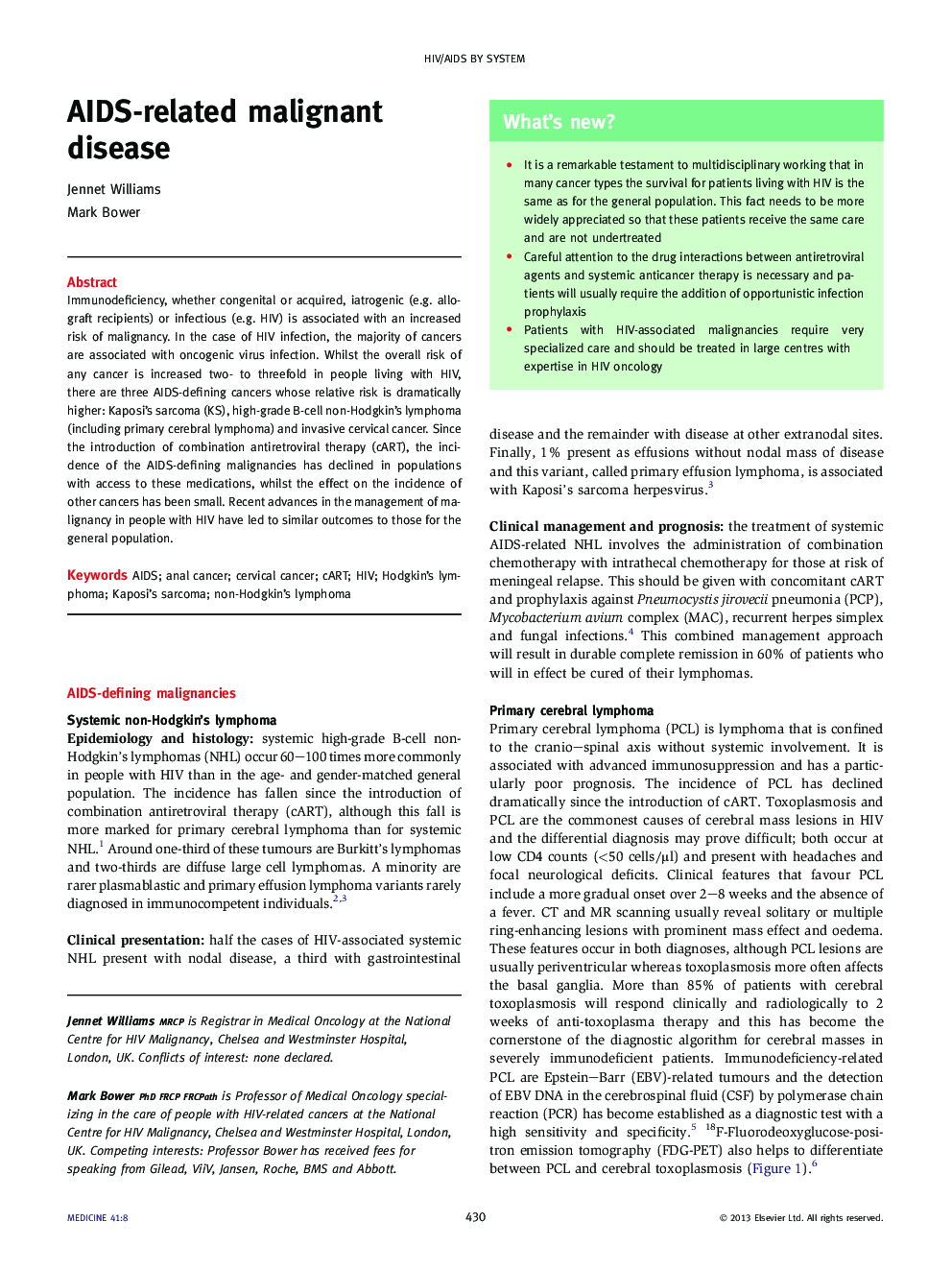| Article ID | Journal | Published Year | Pages | File Type |
|---|---|---|---|---|
| 3807162 | Medicine | 2013 | 5 Pages |
Immunodeficiency, whether congenital or acquired, iatrogenic (e.g. allograft recipients) or infectious (e.g. HIV) is associated with an increased risk of malignancy. In the case of HIV infection, the majority of cancers are associated with oncogenic virus infection. Whilst the overall risk of any cancer is increased two- to threefold in people living with HIV, there are three AIDS-defining cancers whose relative risk is dramatically higher: Kaposi's sarcoma (KS), high-grade B-cell non-Hodgkin's lymphoma (including primary cerebral lymphoma) and invasive cervical cancer. Since the introduction of combination antiretroviral therapy (cART), the incidence of the AIDS-defining malignancies has declined in populations with access to these medications, whilst the effect on the incidence of other cancers has been small. Recent advances in the management of malignancy in people with HIV have led to similar outcomes to those for the general population.
